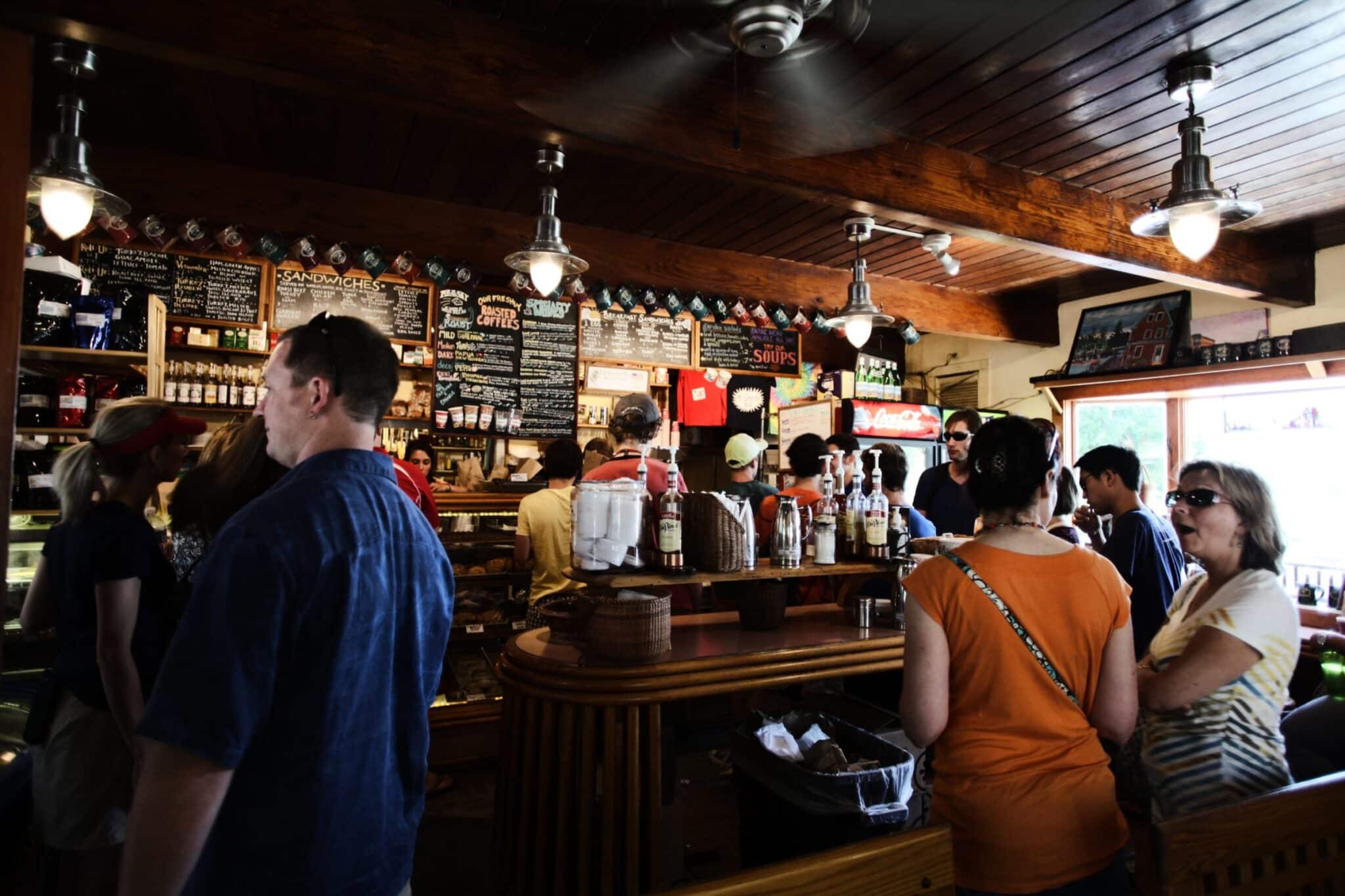Blue Monday to Well Wednesday

Smart marketing for sure. January can have challenging days in terms of mood. For some, there is (usually) cold weather and limited mobility, credit card debt and money worries (ho ho hold the payments), guilt over broken New Year’s resolutions (yup and it’s not even the end of the first month!), and for others again, a sharp decline in social interactions (compared to holiday season). I am a little confused as to how booking a trip helps with credit card debt and money worries, but I do get how it may temporarily help boost a mood.
Now here’s the thing. There are simple things we can do to boost our mood that don’t require airfare. On elizz’s facebook page, we recently asked who you enjoy chatting with in your neighbourhood. This was a pointed question to highlight the benefits of casual everyday interactions. Informal chats with friends or strangers are a readily available source of happiness. Our readers highlighted these benefits themselves, citing laughs, contagious smiles, a caring presence, commiseration when necessary, and enjoyment from chats on the street, in the store, or in the elevator. You can literally feel the joy in their responses.
Combatting social isolation and loneliness
The research supports what our readers shared about connecting with people in their neighbourhood. People with high levels of what is called ‘social integration’- a broad range of relationships with both intimate and so called ‘weak ties’ – are healthier and happier and have a greater sense of belonging.
Belonging is a basic human need. As Brene Brown puts it, we are “…biologically, cognitively, physically, and spiritually wired to love, to be loved, and to belong.” Even interacting with strangers helps us feel less alone. What is most interesting is that both introverts and extroverts benefited from having more conversations. One study even showed that the lack of social connection is more harmful to our health than obesity, smoking and high blood pressure!
Most of us already know the value of close, meaningful relationships. What is less known is that connections with other people such as strangers and casual acquaintances, are also quite valuable. Sociologists call the social connections we have with people outside family and close friends “weak ties”. They are, however, anything but weak. These connections are important for our health and well-being.
Where can we find these “weak ties”? Well, we can get them formally through similar interests (gyms, dog parks, classes) or more informally, through the shop clerk, the cashier, the mail delivery person, a neighbour, etc. They all count. Well, the positive, pleasant ones do. If you argue with the mail delivery person about how late your mail is delivered, this won’t increase your health or happiness.
This isn’t a numbers game
We don’t have to rush out and talk to every person we meet – though that would be an interesting experiment! Instead, social connection is more about our feeling of connection than the number of connections we have. We all know that we can feel lonely in a crowd and we can also be alone and not feel lonely.
Later life and loneliness
While social isolation and loneliness can be a problem for people of all ages, older people are particularly vulnerable because of the many life changes that take place in later life, including retirement, bereavement (loss of partner/spouse) and children moving away. This is important to know when thinking about aging, older adults, retirement and semi-retirement.
Does Canada need a Minister of Loneliness?
There is much attention these days to the negative impact of social isolation and loneliness. Did you know that in the U.K., there has been a Minister of Loneliness since 2018? Loneliness has been defined there as a public health challenge. Loneliness is a risk factor for depression and suicide, sleeping problems, high blood pressure, and an increase in cortisol, a stress hormone. Psychologist Susan Pinker says that face to face contact is like a vaccine against such conditions.
Through the leadership of a Minister for Loneliness, the strategy is to have family doctors prescribe community activities such as art group and cooking clubs for patients experiencing loneliness.
In Canada, we don’t have such initiatives from the government. What we do have are adult day programs and centers which enable older adults to socialize and engage in planned activities. What is popping up more and more are arts programs featuring music, painting , drawing, writing and theatre, all designed to improve quality of life for older adults.
Boomerang
Another interesting development is Boomerang, whose mission is to build a community for retired and semi-retired people. They facilitate human connection through workshops like creative writing, photography, and organizing your home. While they are currently only in Toronto, their ambition is to grow to the GTA and to eventually become a national community. What I love about this initiative is that it targets Canadians early in the aging game. Boomerang also counters negative depictions of growing older by describing their platform as a way for the 55 + crowd to “get the most out of the best phase of their lives.” Ageists, put that in your pipe and smoke it! Or vape it. Seriously, this is a wonderful antidote to ageist beliefs that see aging as a steady decline involving bad news and a worsening quality of life.
How we can increase our social interactions and connectedness
- Be friendly. Every situation is an opportunity. Say something. Don’t ignore strangers or the checkout clerk. Or the barista. Or anyone else you meet as you go about your day.
- Smile. We all know the old adage that smiles are contagious.
- Slow it down. Yes, it is about mindfulness. There is a person in front of you, and if you are in a rush or thinking about what’s next and ahead in your day, you will miss this (hidden) opportunity.
- Volunteer. Purposeful contribution is a great way to feel a sense of belonging.
- Join a local club or workshop around your personal interests.
- Connect with Facebook friends and acquaintances.
Don’t diss that ‘small talk’ with other people. It is a mood booster that is easily available to you in the course of your day and week. Have fun connecting and let us know about your experiences.








